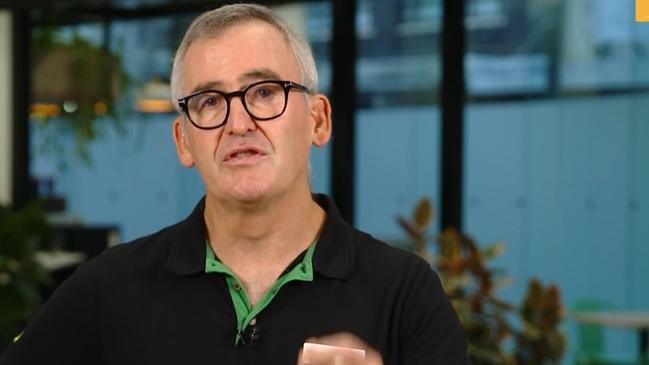
At the same time, Goldman Sachs highlights three key themes for consumer-related stocks this reporting season, and the Australian Competition and Consumer Commission has launched an inquiry into price-gouging by supermarkets.
It came as the local sharemarket remained strong before the Australia Day long weekend.
The S&P/ASX 200 index rose 0.5 per cent to 7555.4 points to be up five days in a row as China cut its reserve requirement ratio for banks and eased collateral rules for property developers.
Iron ore futures hit a two-week high above $US136 a tonne.
At its current 12-month price-to-earnings multiple of around 15.8 times, the S&P/ASX 200 is close to its long-term average. But after the index rose 12 per cent in the past three months, the February reporting season will be an important test of earnings estimates.
In its Evidence Lab survey of about 1000 adults across Australia in December, UBS found Aussie consumers “remained stoic” even as their fundamental financial circumstances “remain challenging”.
“Even as consumers acknowledged income growth was decelerating and savings would deteriorate, overall spending intentions managed to improve quarter-on-quarter,” said UBS equity strategist Richard Schellbach.
“This dynamic was driven by middle-income households, and was apparent through recovering appetite for housing-home improvement, travel and car purchases.”
Indeed middle-income households flipped their intentions from de-leveraging to taking on more debt, even as they overwhelmingly expected mortgage rates to keep increasing.
Mr Schellbach said this was consistent with a surprising rebound in mortgages and personal loans last year.
By spending category, consumers saw the fastest growth occurring in groceries, petrol, utilities, insurance and rent, albeit with less intensity for groceries and utilities.
At the same time, their spending intentions on clothing and footwear, travel, furniture and household appliances, and eating out and takeaway managed to record a modest but broadbased improvement.
“The resilience from the consumer shown in our Q4 survey fits with the broader sentiment observed across the sector over recent months,” Mr Schellback said.
“It is also broadly commensurate with several recent positive trading updates from listed names such as Super Retail Group, Collins Foods and Temple & Webster.
“Although consumers told us they expect their mortgage rates to still increase, our assessment is they expect to be somewhat insulated due to the expectation of tax cuts later this year, and the hope that central banks begin reducing rates through 2024.”
But while the survey showed consumers believe the worst is now behind them, the road ahead isn’t without challenges as growth slows and high inflation may preclude rate cuts for some time.
UBS’s view for the consumer in 2023 was for a “sharp slowing, but not collapse”.
The economy is expected to avoid a recession, which proved to be on the right side of consensus.
“Indeed, we argue this has largely played out, with some signs of resilience continuing in recent months, and this is now supported by this latest consumer survey,” Mr Schellbach said.
“The strong run in equities over recent months has already captured much of this relief sentiment, which leaves little room for earnings to support further share price gains.”
Meanwhile Goldman Sachs said household goods looked to be the “key winners” during the November sales period, and the housing market “remained buoyant” with price increases providing a positive outlook for home improvement.
While valuations of JB Hi-Fi and Harvey Norman are back up to Covid peaks, Goldman Sachs upgraded Wesfarmers to buy based on its cost-cutting efforts and the resilience of Bunnings.
It also noted supermarket volumes remain strong, even as it acknowledged a “potential headwind” from the ACCC’s new inquiry into price gouging.
Goldman Sachs thinks supermarket volumes will remain strong amid a reversion to in-home dining.
It has a buy rating on Woolworths as its growth and profit levers are “under-appreciated” and its industry leading personalisation, online scale and retail media can support gross margins.
At the same time, the broker has a sell rating on Coles as it sees higher fixed-cost spending on supply chain project hiring and sees less ancillary revenue streams to insulate pressure on margins
Of the four turnaround stories seen in the first half, including Endeavour, Treasury Wine, A2 Milk and Domino’s Pizza — which dived 31 per cent on Thursday after a profit warning — Goldman Sachs thinks Endeavour should see the most positive reaction to its December half-year results.
It expects a sequential improvement in Endeavour’s retail sales, together with a stabilisation of gaming revenues which should support its hotels business.





As the February reporting season looms, UBS says consumer spending intentions rose despite headwinds in the December quarter, but share prices may have captured this resilience.